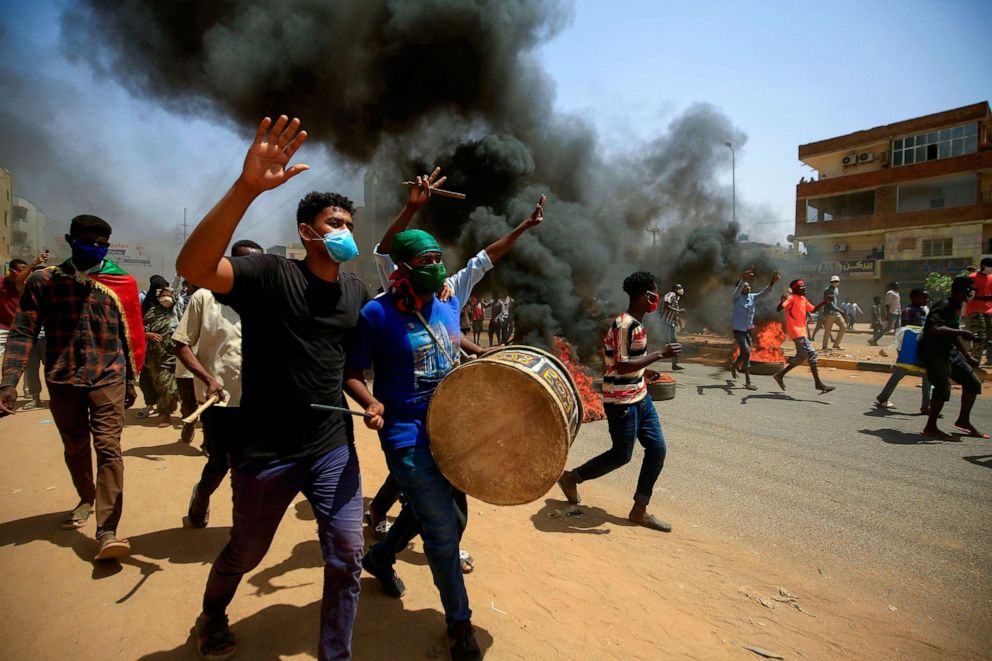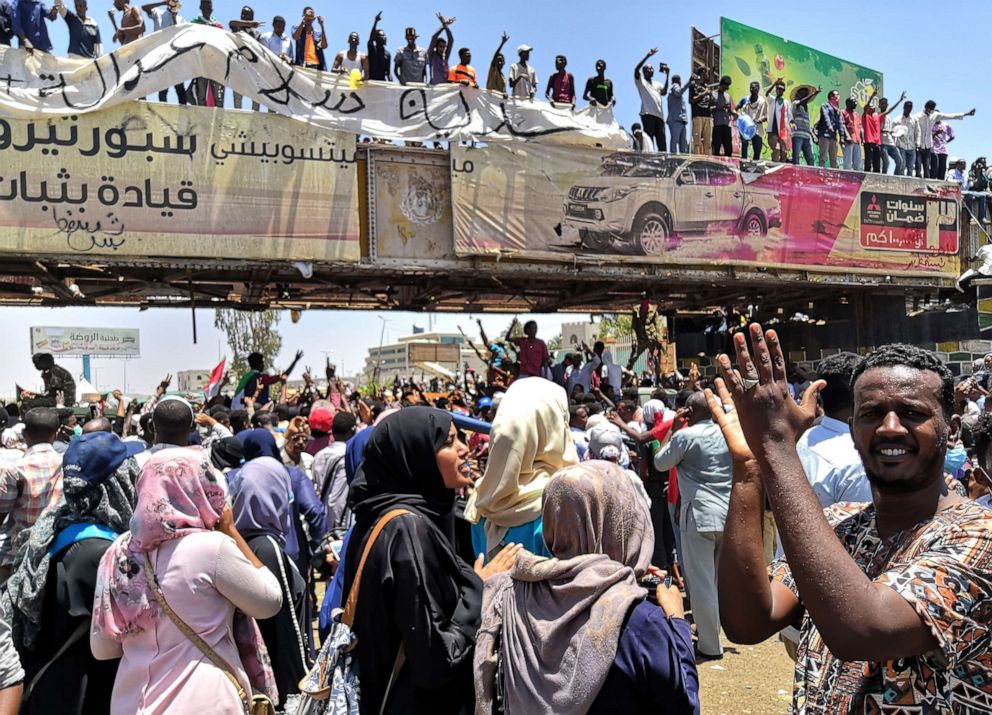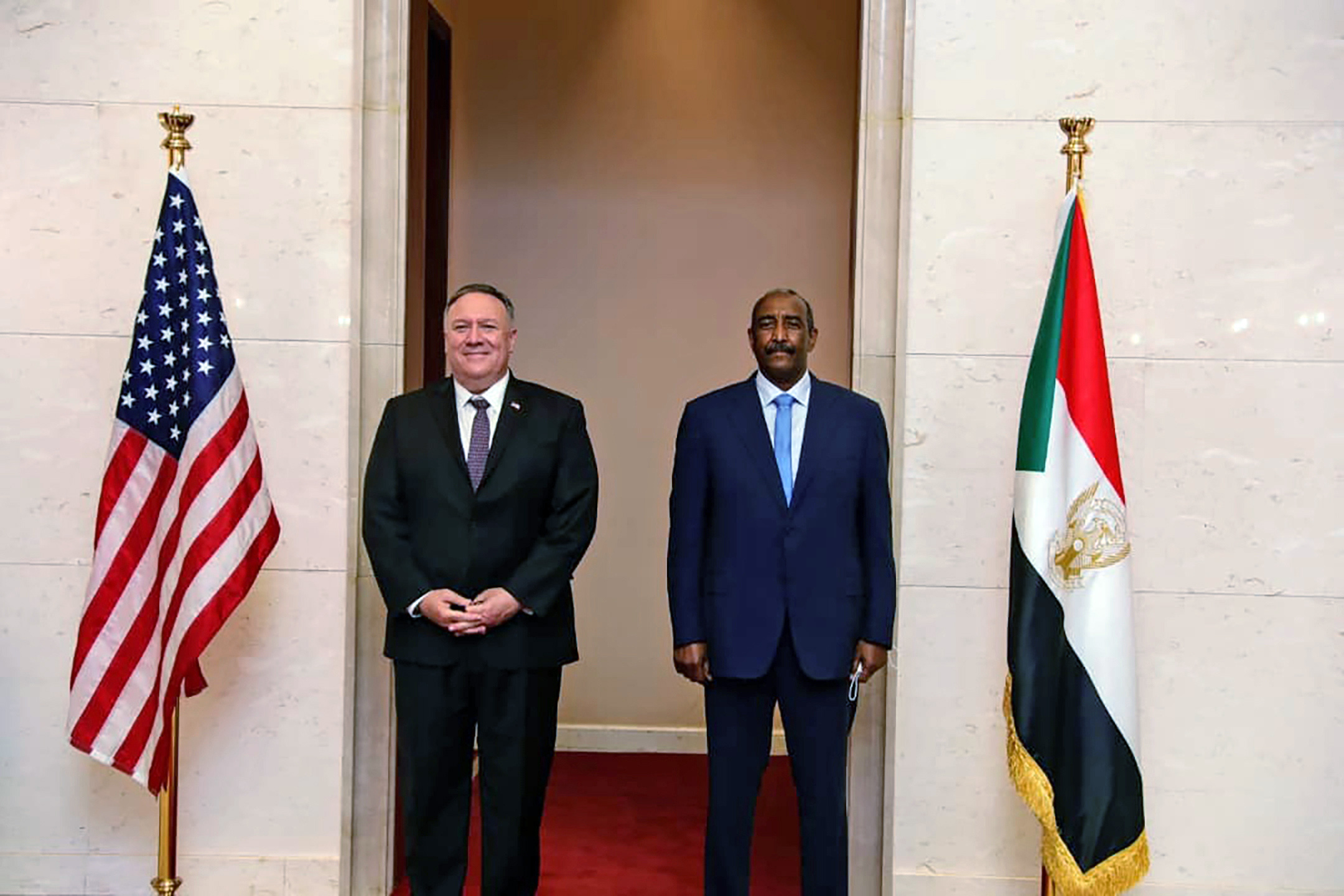Trump says US will remove sanctions on Sudan in historic new chapter in relations
Sudan paid $335M to terror victims in exchange for the end of a U.S. designation
President Donald Trump tweeted that he will remove Sudan from the state sponsors of terrorism list -- the most stringent of U.S. sanctions -- in a historic move that marks a new chapter in relations between the two countries.
In exchange, Sudan's new government has paid $335 million to the victims of the 1998 bombings of the U.S. embassies in Kenya and Tanzania.
The move is part of a broader deal that could bring debt relief, international financial assistance, and humanitarian aid to the African country, a year and a half after peaceful protests ousted its longtime strongman leader Omar al Bashir. In his place, military leaders are sharing power with civilians in a transitional government that has struggled with political and economic crises and urgently sought the end of these sanctions.
The deal may also include Sudan normalizing relations with Israel -- a step that its civilian prime minister has said the transitional government could not make, but that Trump has lobbied hard for in a campaign-season push to create new ties between the Jewish state and its Arab neighbors.

So far, however, nothing has changed. Sudan is expected to transfer the $335 million to the U.S. soon as part of a negotiated settlement with the victims of the U.S. embassy bombings. Bashir's regime provided safe haven to the al-Qaeda operatives responsible for the attacks that killed 224, including 12 Americans and injured over 4,000.
Trump has not yet formally notified Congress that he is lifting the designation, and lawmakers would have the ability to block it. That's not likely to happen, but Congress will have to resolve ongoing claims against Sudan in legislation that re-establishes its "legal peace" -- a legal term that means as a sovereign country, it cannot be sued.
Sudan's listing on the state sponsors of terrorism list waived that immunity, but before Congress returns it, some lawmakers have concerns about protecting ongoing litigation by victims of the Sept. 11 attacks, even though Sudan has never been found liable for those. An agreement to resolve those issues fell apart last month, sources told ABC News at the time.
Edith Bartley, whose father and brother were killed in the Nairobi attack and who has served as a spokesperson for the families of slain Americans, welcomed the news Monday.
"We urge Congress to immediately pass the legislation that is needed to implement the agreement, and begin the payment process. Congress cannot let this agreement fall victim to legislative gridlock and bickering," she said in a statement.

Sudan was first designated in 1993 for Bashir's support of Hezbollah and other Islamist extremist groups. The dictator, now in detention in the capital Khartoum, also faces charges at the International Criminal Court for the Darfur genocide.
Lifting the designation will also allow international financial assistance to finally flow to Sudan -- not just from the U.S., but also global institutions like the World Bank and the International Monetary Fund.
While that may take weeks at the earliest, the political win for the transitional government may help stave off growing discontent among a population struggling to get by. Sudan has been overwhelmed by high inflation and food and fuel shortages -- challenges that have been exacerbated by COVID-19 and recent flooding.

"Thank you so much, President Trump! We very much look forward to your official notification to Congress rescinding the designation of Sudan as a state-sponsor of terrorism, which has cost Sudan too much," tweeted Prime Minister Abdalla Hamdok Monday. "As we're about to get rid of the heaviest legacy of Sudan's previous, defunct regime, I should reiterate that we are peace-loving people and have never supported terrorism."
The White House and the State Department have not yet released other details. But according to two analysts briefed on the plans, the U.S. will also take other key steps to support the Sudanese government, including providing hundreds of millions in aid, including direct food aid; backing $3 billion in debt forgiveness and help with $65 billion of national debt; and sponsoring an investment conference with a high-level U.S. trade delegation.
"Most of these things would have already been in train if the Administration was truly committed to nurturing Sudan's democratic transition, staving off financial collapse, and deterring the return of military rule," wrote Cameron Hudson, a senior fellow at the Atlantic Council's Africa Center. "Instead, the Trump Administration has kept the transitional government guessing, the Sudanese people's frustration mounting, and the military poised to step in to secure a final deal if the civilian authorities did not."
At the heart of that has been Trump's push for Arab countries to recognize Israel. Those historic agreements, between Israel and the United Arab Emirates and Bahrain, have formalized increasing cooperation behind closed doors -- and been brandished by Trump and his reelection campaign as evidence of his statesmanship.
But Hamdok has said his transitional government doesn't have the authority to establish formal ties with Israel, and there's deep concern of a backlash in Khartoum to doing so. Instead, Sudan may begin to normalize relations with Israel in the coming weeks, without fully establishing ties.




